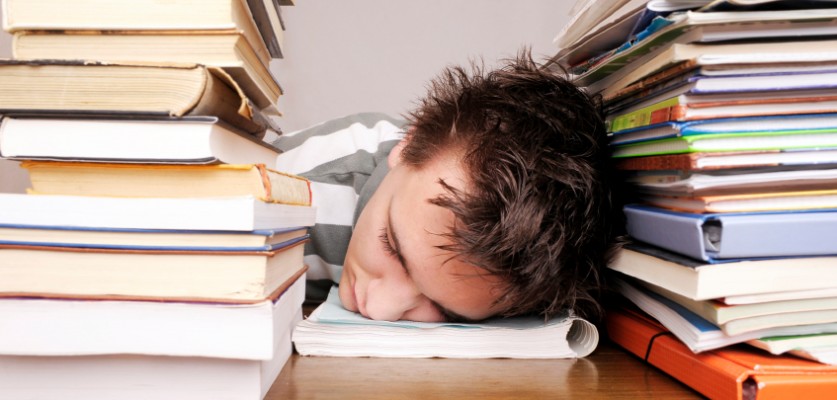Bryan Workman, a Santa Rosa Junior College student, prepares for finals by going over his notes and studying weeks in advance. He even adds classical music to the mix, to help him concentrate on his course material.
When studying for finals, Workman said, “[I] lock myself in my room, turn the computer off and listen to music.”
Workman likes to block off a whole day to study and can usually study eight or more hours during that day, but he does take occasional breaks throughout those long study sessions.
While on a study break you can find him playing on his computer or phone – anything to give his brain a rest and get his mind off studying
It’s that time of year again; the leaves are falling, the weather is getting colder, days are getting shorter and the semester is coming to an end. This only means one thing: finals season has arrived. It’s the most dreaded time of year for college students across the world.
Finals season is full of stress and anxiety, but by the time students reach college, they have an idea on how to prepare for tests that can make or break them. Some study weeks in advance, others study days in advance and some may not study at all. Every student is different and has his or her own way of preparing for one of the biggest tests of the semester.
As the end is near, you can see students getting into gear; studying before class, after class, in the library and in group settings. Students will do anything to get a good grade.
“[To study,] I just read stuff over and over again and I make flash cards,” said SRJC student Ashley Hart.
Hart also checks in with her teachers two or more weeks before finals so she knows what to expect when the day arrives. She studies multiple weeks in advance and likes to go into her finals with a clear mindset.
Kinesiology and dance instructor Corinne Antipa advised students to just breathe, when it comes to finals. Take five minutes by yourself to breathe consciously. The lesson she teaches to her students around finals is about breathing and counting breaths.
Antipa also advises students to spend time after each class to rewrite their notes, get reorganized and remember what they learned in past lessons. This will help students retain more of the information they learned in class.
Just like some students like to study weeks in advance, others find it more effective to study for a final days in advance. SRJC student Katie Menzel finds if effective to study in the library or at home a couple days before her finals.
Menzel joked, “[Before I go in to a final] I pretty much just think about how awesome I am.” She also visualizes and remembers how much she studied and prepared for the final.
Then there are students like Sheyla Ayala, who study months in advance. She gets a head start by talking with her teachers about what to expect on the final, then goes over her notes and makes flashcards.
“I usually just go to the library and study for a few hours and then I go home,” Ayala said. “I like studying with [reggae] music, because I concentrate better and I block everything out.”
SRJC student Ezra Graham named a run and a good breakfast as some of his pre-final rituals. Like many others, studying in his room reciting his notes is an effective way for him to prep for finals.
“I’m starting to study early for my finals,” Graham said. “[I’m] putting more emphasis on getting my studying time in two weeks before, so I can be focused during finals week.”
Since finals are a near universal reality for college students, people are probably wondering how students at other colleges prepare for their finals.
University of Missouri Kansas City student Sarah Ragan studies for her finals a couple days in advance by doing concept maps and quizzing herself on certain material. She too studies in the library for several hours a day.
“I’ll do 20-minute [study] intervals with a five to 10-minute break in between, for anywhere between three and eight hours depending on how much availability I have that day,” Ragan said.
She’s not a nervous test taker, however she admits she over-analyzes questions. When this happens, she closes her eyes and allows her brain to go blank. To her, this is like a reset button.
Mara Vejby, behavioral sciences instructor, also had some valuable advice for students when it comes to finals.
“My biggest piece of advice is [to] study hard, but sleep, because if it’s a difference between studying [a little longer, or] getting [a] bit more sleep so you’ll be awake to take the final, [go with the sleep],” Vejby said. “You’d be surprised at what your brain will continue to work on while you sleep.”


